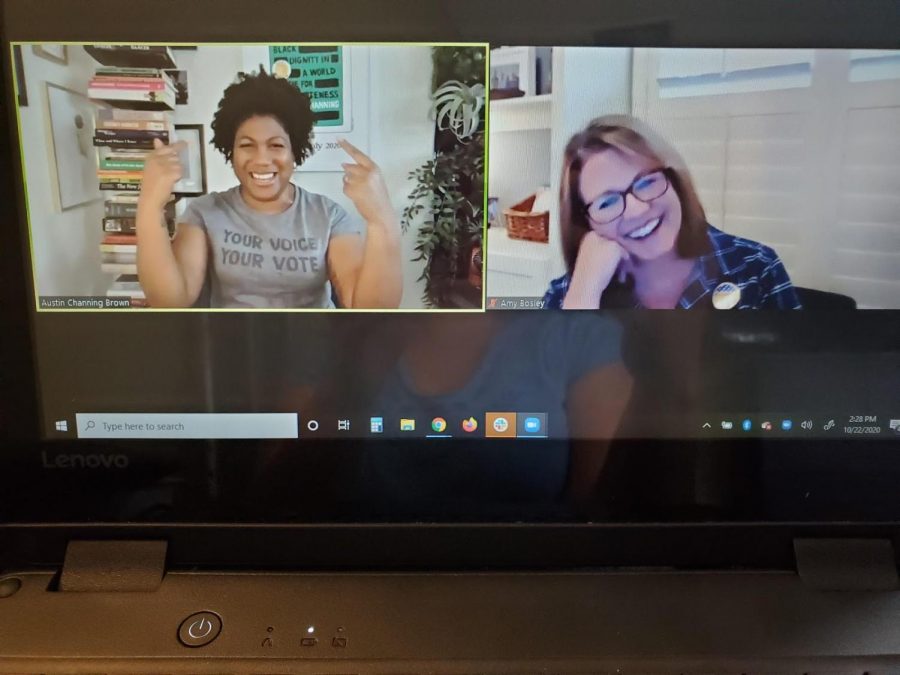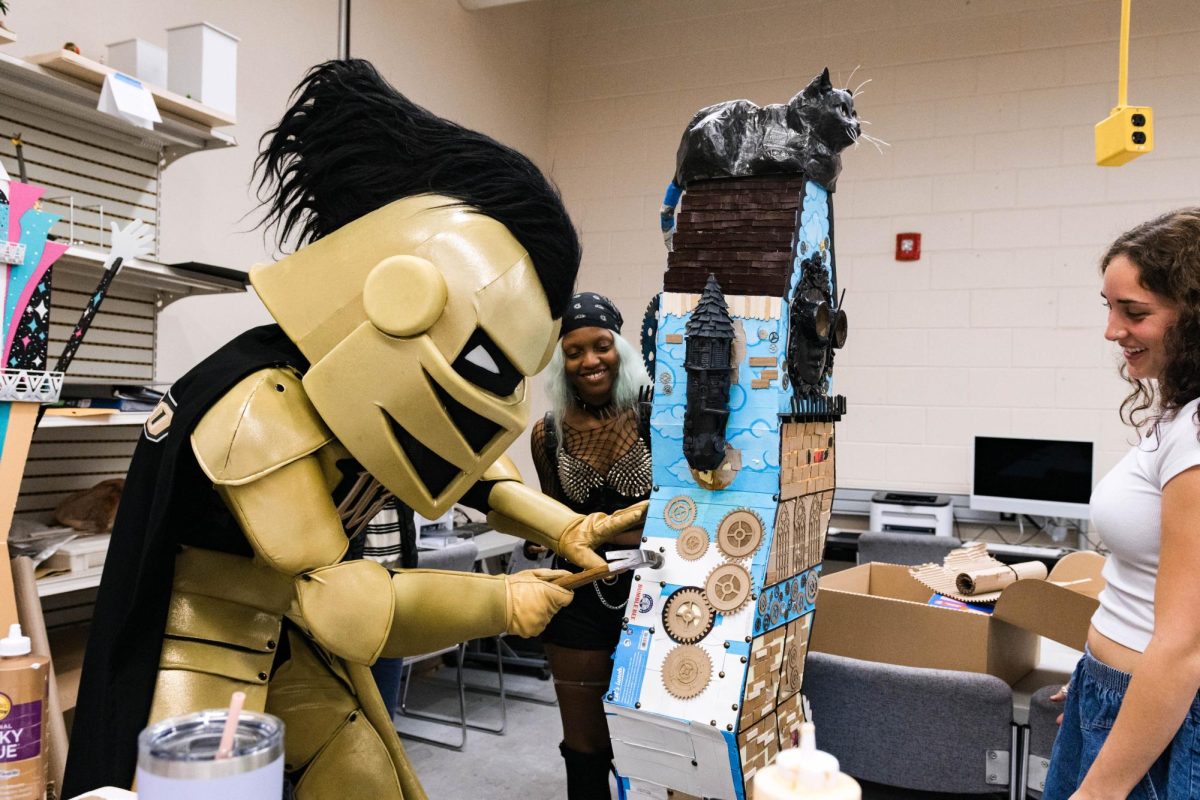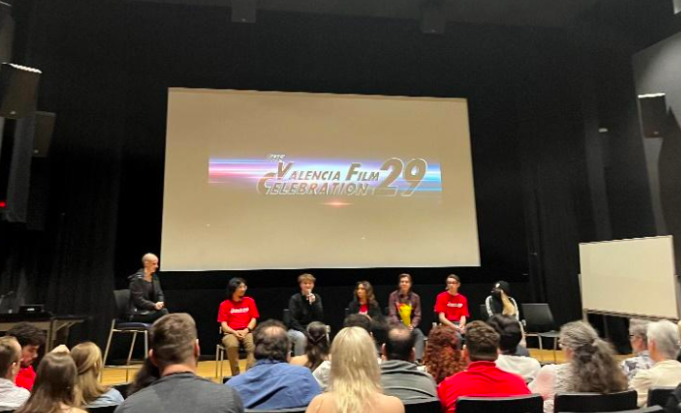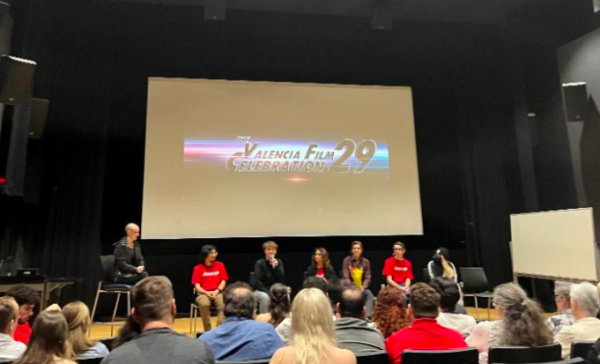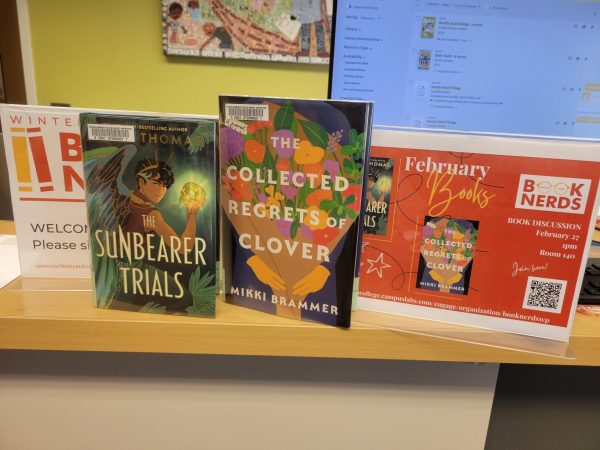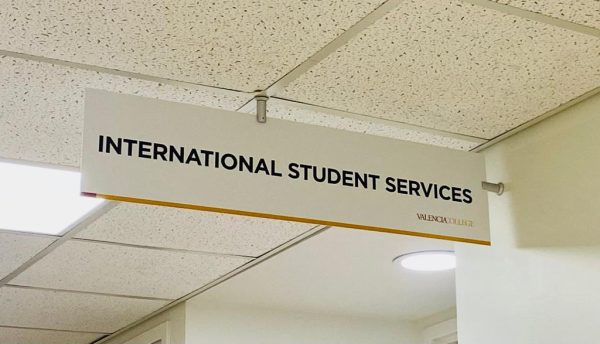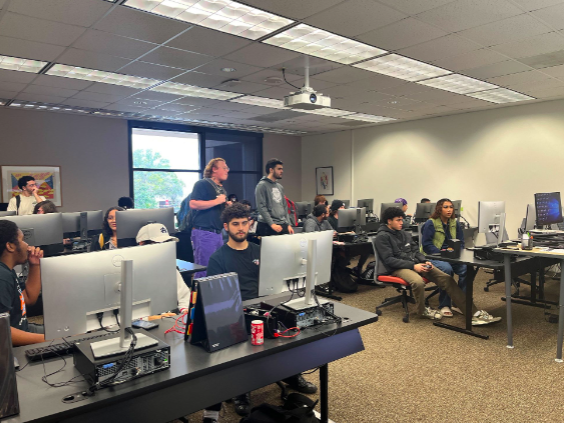Bestselling Author Austin Channing Brown Discusses Systemic Racism with Valencia
Austin Channing Brown explains the difference between effectiveness and assimilation.
November 9, 2020
At this year’s Inclusive Excellence Speaker Series, attendees of the four Zoom sessions received unfiltered answers about matters of race from Austin Channing Brown — a black, female, speaker, producer and best-selling author.
Channing Brown kicked off the final session on Thursday, Oct. 22 by cheerfully stating, “I’m rocking the big hair — don’t care — which means you should ask anything you want.” This set the tone for a variety of questions, ranging from biracial identity to equitable hiring practices.
That Q&A format was different from the first public session on Oct 21., when the moderator energetically questioned Channing Brown about life experiences — from her suburban childhood through the release of her book I’m Still Here — while occasionally taking questions.
According to two 20-year-old minority students, Savannah Younger and Claire Newman, the best part of that session was Channing Brown’s reply to a white woman who asked, “How can I help attack systemic (and) subconscious racism?”
Channing Brown explained that it helps when white Americans pay attention to the inequalities in their environments instead of relying on minorities to point them out. Then she added, “What we need from white allies is not more niceness … what we need is people who are brave—people who are willing to disrupt the ways in which … people of color are being mistreated right in front of our eyes.”
Amy Bosley, the vice president of organizational development and human resources, moderated the last session and read Channing Brown’s book. Bosley said, “I thought she was incredible. I learned so much about ways to foster an inclusive work environment.”
In contrast, Monica Bee, a 28-year-old white student stated, “I feel like the motivation behind these exercises is important … but some of the information gets lost in translation …we cannot always empathize with other people’s experiences, but we can all empathize with the feeling of isolation, of loneliness, of being an outcast.” These are the points Bee thinks should be highlighted. Fortunately, Bee also learned some things from Channing Brown, like how skin color adds to the difficulty of meeting cultural expectations.
The Assistant Vice President of Equity and Access, Ryan Kane, said Channing Brown’s engagement with the school is a “significant step to … positively affect change (and) inspire both thought and positive action towards progress within our Valencia community.” This is one of the goals of The Inclusive Excellence Speaker Series, which began with speaker Lee Mun Wah, a Chinese American documentary filmmaker, in 2016. Kane explained that last fall “the topic of racial justice and anti-racism were identified as priorities for this year’s series,” which was initially scheduled for the spring semester. In addition to inviting Channing Brown to speak, Valencia included a request for faculty and staff members to complete a statement acknowledging their commitment to achieve an equitable community in the event registrations. I’m Still Here was also recommended for faculty and staff reading circles, like Bosley’s.
Dariel Cruz Rodriguez is a dual-enrollment student who attended Channing Brown’s last session. Cruz Rodriquez said, “It was an enjoyable event,” and admitted, “It was definitely uncomfortable hearing about racial inequality in our school system (but) seeing the topic finally shined light on is very refreshing.”
Although these types of candid conversations about race can be difficult, Newman hopes it “informs people about what others have to go through in life.” As a Chinese American, Newman said she could identify with Channing Brown’s experience of not feeling black enough at times. “Sometimes I’m too Asian around my white friends but too whitewashed around my Asian friends,” Newman said.
In response to these events, Valencia has received 67 commitment statements and 150 feedback surveys, which Kane described as “overwhelmingly positive.” Additionally, this is only one step Valencia has taken to foster an equitable and inclusive environment.
The Academic Coordinator for the Peace and Justice Institute, Professor Celine Kavaleck-Miller, explained that programs like SEED — Seeking Educational Equity and Diversity — are a good measure of both the commitments and follow-through of Valencia’s faculty and staff members because SEED helps those “that are making commitments to reflect on their own areas of privilege and biases (in a variety of areas).” According to Kavalec-Miller the registrations for SEED have already quadrupled this fall, which is a great sign for the school.

